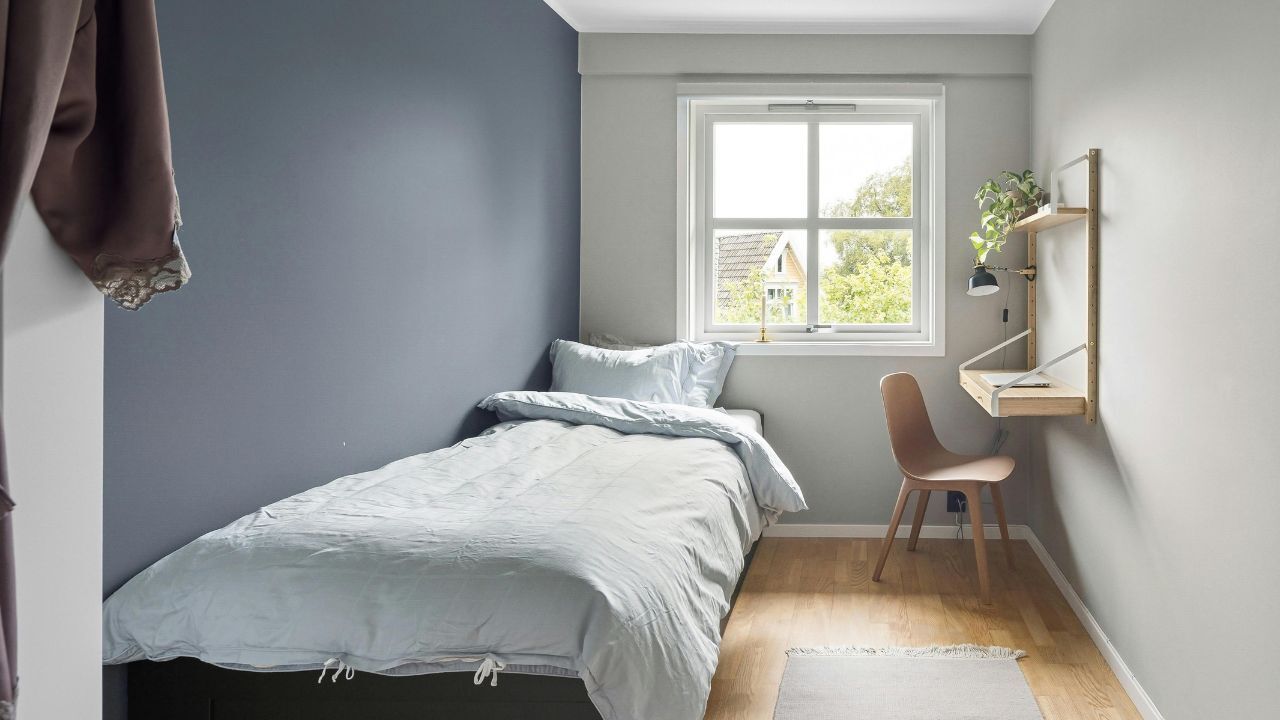 When it comes to selling a home, not every room needs to be oversized to impress potential buyers. While large bedrooms may be ideal, smaller spaces can still add value if they are presented well. If your home has compact bedrooms, there are strategic ways to highlight their functionality, comfort, and charm. With the right approach, you can turn a perceived drawback into a unique selling point.
When it comes to selling a home, not every room needs to be oversized to impress potential buyers. While large bedrooms may be ideal, smaller spaces can still add value if they are presented well. If your home has compact bedrooms, there are strategic ways to highlight their functionality, comfort, and charm. With the right approach, you can turn a perceived drawback into a unique selling point.
Focus on Function and Purpose
Buyers want to visualize how they will use each room. Help them see the potential of a smaller bedroom by staging it with intention. Consider setting it up as a child’s room, a guest room, or even a stylish home office. Adding thoughtful touches like a small desk or reading nook can help buyers understand the versatility of the space.
Use Light and Color to Create Openness
Light has a major impact on how spacious a room feels. Keep curtains light and airy, or remove them altogether to let in natural sunlight. Use soft, neutral colors on the walls to reflect light and open up the space visually. Mirrors are also a great tool. Strategically placed mirrors can make a small room feel twice its size and add an element of style.
Maximize Storage Solutions
Clutter can quickly make a small bedroom feel even smaller. Make sure the room is clean, organized, and free from excess furniture. Use clever storage solutions like under-bed bins, wall-mounted shelves, or multi-functional furniture to demonstrate how buyers can stay organized without sacrificing space. A tidy room with smart storage can give the impression of more square footage.
Highlight What the Room Offers
While it may be tempting to apologize for the room’s size, focus instead on what it provides. Talk about the quality of natural light, a great view, or the quiet location within the home. If the bedroom is close to a bathroom or has a large closet, make sure to emphasize those benefits.
Stage for Scale
Avoid using furniture that overwhelms the room. Choose pieces that fit the space and leave plenty of room to move around. A twin or full-size bed, rather than a queen, may be more appropriate in a smaller bedroom. Keep decor simple and proportional. A few well-chosen accents can enhance the room without making it feel crowded.
Market the Whole Package
Remember that buyers are looking at the home as a whole. If the living room, kitchen, and main bedroom are spacious, a smaller secondary bedroom will not be a deal-breaker. In fact, some buyers may appreciate a cozier space for guests, children, or hobbies. Focus on the home’s strengths and show how every room serves a purpose.
Selling a home with small bedrooms does not have to be a challenge. With thoughtful staging, smart design choices, and a clear focus on function, you can help buyers see the true potential of every space. The key is to shift the conversation from square footage to livability.
 The idea of owning a vacation home is a dream for many. Imagine having a personal getaway spot to escape the everyday hustle, a place where you can unwind and make memories with family and friends. While the idea is appealing, owning a second home is a big decision that comes with both advantages and responsibilities. If you are considering purchasing a vacation home, it is important to weigh the pros and cons before moving forward.
The idea of owning a vacation home is a dream for many. Imagine having a personal getaway spot to escape the everyday hustle, a place where you can unwind and make memories with family and friends. While the idea is appealing, owning a second home is a big decision that comes with both advantages and responsibilities. If you are considering purchasing a vacation home, it is important to weigh the pros and cons before moving forward. Buying or selling a home is one of the biggest financial decisions most people will ever make. With so much at stake, having a real estate professional on your side is not just helpful, it is essential. A licensed agent brings knowledge, negotiation skills, and peace of mind to the process, helping you avoid costly mistakes and make confident choices.
Buying or selling a home is one of the biggest financial decisions most people will ever make. With so much at stake, having a real estate professional on your side is not just helpful, it is essential. A licensed agent brings knowledge, negotiation skills, and peace of mind to the process, helping you avoid costly mistakes and make confident choices. More than two years have passed since the official end of the pandemic emergency, but the ripple effects continue to shape how people buy and sell homes. From remote work to rising costs, the real estate landscape has changed, and buyers and sellers need to understand the trends that continue to drive the market.
More than two years have passed since the official end of the pandemic emergency, but the ripple effects continue to shape how people buy and sell homes. From remote work to rising costs, the real estate landscape has changed, and buyers and sellers need to understand the trends that continue to drive the market. As communities gather to celebrate the 4th of July, this national holiday serves as a meaningful reminder of the values that define the United States: freedom, independence, and opportunity. While the day includes parades, fireworks, and time with neighbors, it also carries deeper significance for homeowners and those pursuing homeownership.
As communities gather to celebrate the 4th of July, this national holiday serves as a meaningful reminder of the values that define the United States: freedom, independence, and opportunity. While the day includes parades, fireworks, and time with neighbors, it also carries deeper significance for homeowners and those pursuing homeownership. Selling a home can be a significant undertaking, especially when considering the time, effort, and money often required to prepare a property for the market. However, not every home requires major renovations to attract buyers. In many cases, sellers can list and successfully sell a property by focusing on strategic improvements and presenting the home in the best possible condition. If you are hoping to sell your home with minimal repairs, the following tips can help you do so effectively.
Selling a home can be a significant undertaking, especially when considering the time, effort, and money often required to prepare a property for the market. However, not every home requires major renovations to attract buyers. In many cases, sellers can list and successfully sell a property by focusing on strategic improvements and presenting the home in the best possible condition. If you are hoping to sell your home with minimal repairs, the following tips can help you do so effectively.